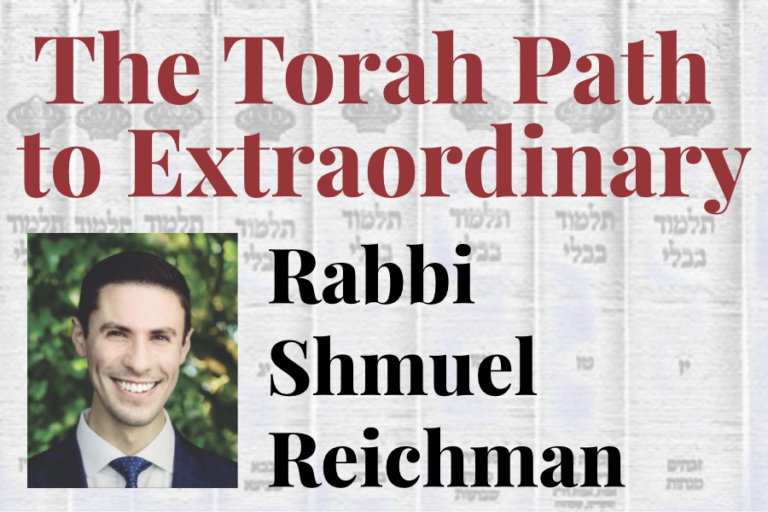This commitment is not mere words; it must be backed up by action. We must actively seek out ways to change our behavior and prevent the same mistake from happening again. This commitment to change is what truly differentiates teshuva from simple regret.
By following these steps of teshuva, we can stop the downward spiral of momentum and begin to rebuild our lives in a positive direction. We can use the wake-up call from Hashem as an opportunity for growth and transformation, rather than allowing it to lead us further down a destructive path.
So, when you hear the trumpet blast in your life, take a moment to reflect on what time it is. Are you moving in the direction you want to go, or are you caught in a negative cycle of momentum? Remember, you have the power of free will to choose your path and the ability to make teshuva to redirect your life towards blessing and growth. It’s never too late to change course and embark on a new journey towards self-improvement and spiritual elevation.
May we all merit to hear the wake-up call from Hashem and use it as an opportunity for positive change and growth in our lives. May we have the strength to stop negative momentum and redirect our paths towards blessing, happiness, and fulfillment. And may we all be inscribed in the Book of Life for a year of health, happiness, and success.
This article was inspired by a Rosh Hashanah drasha given by Rabbi Yoel Gold. For more inspirational Torah content, visit his website at www.rabbigold.com.
We must commit to strive toward a greater version of ourselves, whereby if given the chance to repeat this mistake, we would not give in to temptation but would overcome the challenge instead.
The Necessity of Free Will
In order for the process of teshuva to exist, there is one essential element: free will. The only way we can genuinely change, transform, and evolve is if we have the capacity to assert our inner will and to create a new reality within ourselves. This requires a complete re-creation of self within our consciousness â a remolding of our inner world. While yesterday we were the type of person who did one thing, today a new decision is formed and a new reality is created within our inner world. This requires a complete assertion of willpower, an overcoming of self, and a breakdown and reformation of inner drive and character. This means giving up who we are for who we want to be; sacrificing what we think we want for what we truly want (see Rambam, Mishneh Torah, Gerushin 2:20, where he discusses the relationship between our true ratzon [ârotzeh aniâ] and our lower self). It means overcoming the emotional and overwhelming pull of current desire and generating a new âwantâ within our very core. This is why the Rambam places his seemingly philosophical discussion of the concept of free will amongst the halachos of teshuva; free will is the very root and foundation of Hilchos Teshuva. Without free will, one could never change and one could never become something else, someone new, and someone better.
Strikingly, Rav Eliyahu Dessler explains that many people never experience a true assertion of their free will due to its immense difficulty. This is why many people do not change. Change is hard, uncomfortable, and often requires sacrifice. One must fully and wholeheartedly believe in their new future in order to give up their current lifestyle. However, when we push with all our might, expressing a full force of our inner will, we get a taste of truth, an experience of destiny, and a glimpse of our true self.
However, this understanding of teshuva, namely, that of return, has an even deeper layer to it. After all, if teshuva is an act of return, what or whom are we returning to? In our next article, we will delve deeper into this fascinating topic and try to answer this question. In the meantime, may we all be inspired to continue to embark on the journey of becoming our ultimate selves!

